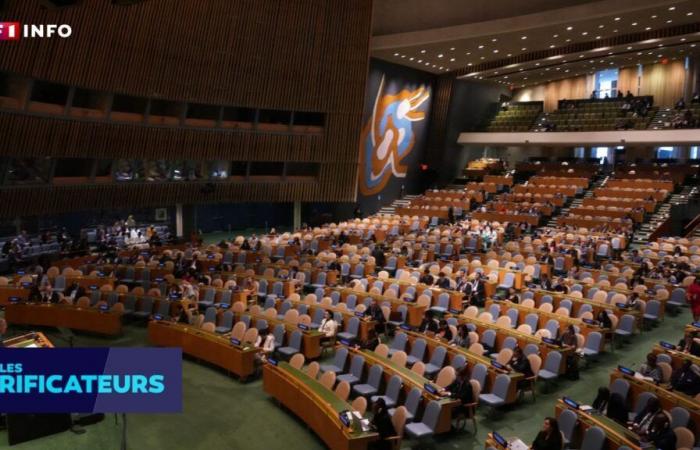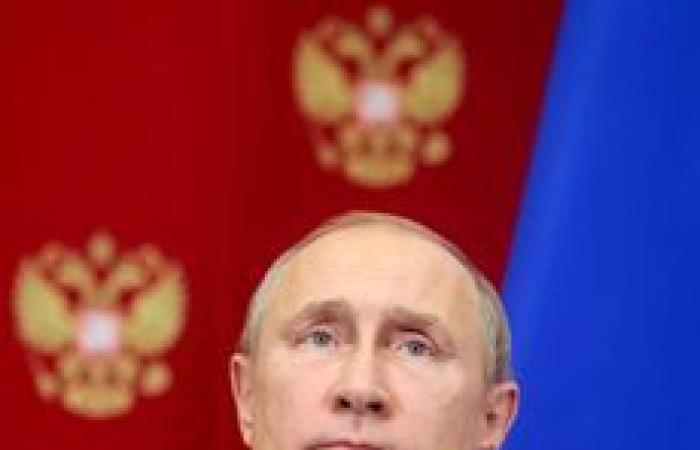Internet users accuse Paris and kyiv of having refused a United Nations resolution against neo-Nazism.
France actually opposed this text tabled by Russia this Tuesday.
A position identical to that adopted by all European countries since the invasion of Ukraine in 2022.
Follow the full coverage
Information scrutinized by Auditors
Not content with accusing kyiv of being in the hands of neo-Nazis since the start of the conflict, Russian propagandists are now attacking all Westerners. In a publication put online this Wednesday, December 18, an account that we identified as a relay for Russian propaganda in France claims that Ukraine, accompanied by several European countries, has “refused a United Nations resolution against the glorification of Nazism”.
A way for these disinformation actors to feed the Kremlin's narrative according to which Russia is alone at war against new forms of extremism.
The Internet user refers to the draft resolution found under the name A/C.3/79/L.2 (new window). Initially filed by Russia, Belarus and Turkmenistan, it concerns the “fights against the glorification of Nazism, neo-Nazism and other practices which contribute to fueling contemporary forms of racism, racial discrimination, xenophobia and the intolerance associated with themciated“.
As indicated in the report of the General Assembly available online (new window)the resolution was adopted on December 17 due to the vote of 119 countries. Ten abstained and 53 were against, including, indeed, France, Germany, the United States and Ukraine. So how to explain it? Should we see this as a form of confession on the part of these countries?
An identical position for two years
No way. This is evidenced by the speeches of the representatives of these states, filmed on election day (new window). After her vote, the Ukrainian representative began by “firmly condemn all forms” of racism. If she opposed, she explains, it was to denounce “the hypocrisy of the aggressor country” at the origin of the text, which “introduces a resolution condemning the very ideology he reflects in his war against Ukraine.
“It’s like a serial killer lecturing on the virtues of not killing”she insisted before the General Assembly. kyiv believing that Moscow has not “not the moral right” to present himself as “guarantor of the fight against neo-Nazism”she also fears that this resolution will be “manipulated by Russia” (new window).
Reason why Ukraine passed an amendment (new window) to this non-binding resolution. Namely, that she notes “with concern that the Russian Federation has sought to justify its territorial aggression against Ukraine by invoking the elimination of neo-Nazism”. “The real intention of this resolution is to manipulate history and defend a future discourse on a supposed victory against Nazism”concluded the Ukrainian representative.
-
Read also
DECRYPTION – Why does Vladimir Putin say that “neo-Nazis” are in power in kyiv?
And on the Paris side? Asked to find out more about the reasons behind its vote, the permanent mission of France to the United Nations refers us to the speech of Hungary, spokesperson for “the common position of the countries of the European Union” during this election. Before the General Assembly, the Hungarian representative also “categorically rejected Russia's inaccurate and misleading use of the term denazification to justify its war against Ukraine.” In the eyes of all the European countries which have spoken out against this text, the fight against all forms of extremism deserves a “serious and meaningful discussion”he argued, opposing to this objective that of Russia which would, on the contrary, be “divide and use the General Assembly to spread disinformation.”
To TF1info, the French representation also reminds that this common position was decided “from the start of Russia's illegal invasion of Ukraine”. In fact, every year since 2012, Russia has submitted the same project, urging vigilance in the face of modern forms of xenophobia. Endorsed annually by a large majority, this resolution has however never been voted on by France. For ten years, the country abstained. Since 2022, its representative has systematically voted against this text denounced as (new window)“a reductive speech intended to divide Europeans”.
Do you want to ask us questions or submit information that you do not believe is reliable? Do not hesitate to write to us at [email protected]. Also find us on Twitter: our team is present there behind the account @verif_TF1LCI.







